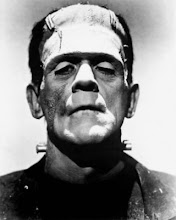The romantics believed that it was individual and collective visual imagination that would create a new understanding of the world and lead to a more perfect version of human beings and the societies in which they lived. Victor is the ultimate dreamer, who is preoccupied by otherworldly concerns and unattainable ideals. In this sense, he is highly romantic.
First, there is the obvious example of Victor Frankenstein pushing against his limitations as a human being by striving to play a God-like role by making the Creature. For Victor, it is not satisfying enough to simply study philosophy and science and proceed on to a respectable profession. He must perfect the role of the scientist by attempting to accomplish the impossible, a process which is inevitably frustrated, as it must be, by the fact that overstepping human boundaries has significant consequences. Shelley’s Frankenstein is not a mad scientist, as his character has been reduced to over the years, but a scientist who is passionate about the primary questions and preoccupations of his time. In his Romantic quest for a scientific ideal—the perfect human—he creates a monster, who then must be held in check by other systems and institutions that humans have also created. While these institutions are more concrete and based in reality than the creation of the monster, they are equally imperfect. This novel helps the reader understand that there is no such state as perfection. Furthermore, there is no social experiment, whether based in reality or in fantasy, that will result in an ideal solution. Rather, human beings will always create imperfect institutions and inventions, and given this, must be prepared to accept responsibility and anticipate the potential consequences.
http://www.articlemyriad.com/romanticism_frankenstein.htm
Monday, April 26, 2010
Subscribe to:
Post Comments (Atom)

No comments:
Post a Comment